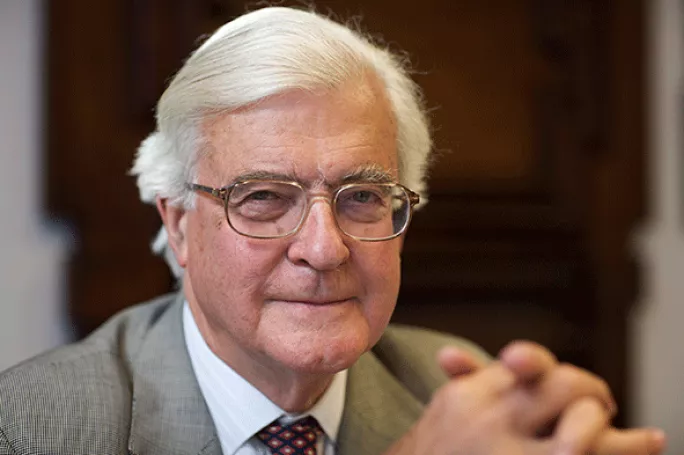Lord Baker: ‘FE must start providing the education young people deserve and that the country needs’
Lord Baker, former secretary of state for education and chair of the Baker Dearing Trust, writes:
For some time I have been talking about the ever-growing skills gap that we are facing in this country. It now transpires that the UK is not alone. Last week’s international research report from McKinsey highlights that employers across Europe are ‘struggling to fill vacancies’ - yet young people are facing higher levels of unemployment than ever.
Why this disconnect? Why are our young people not equipped with the necessary skills to take on these jobs, which cover a huge range of industries?
The problem has arisen partly as a result of the declining quality of technical and vocational education in this country - and the low esteem that has been attached to this route over the past 50 years. It is no coincidence that in countries where vocational education is valued and encouraged, youth unemployment rates are much lower - for example, Austria and Germany.
Schools in the UK have been under pressure to encourage students along the academic pathway, often regardless of an individual’s interests or strengths. Very few high-quality alternatives have been available, resulting in a huge loss of skilled workers, which are so vitally needed in a healthy economy.
So the time has now come for the FE sector to lead the way in educating 14-19-year-olds. It needs to fulfil its responsibility to young people in the UK by equipping them with appropriate and relevant skills, helping them to develop the social skills and commercial acumen need in the world of work.
The government has recently made some very positive changes. Last September it was ruled that FE colleges could accept students from the age of 14. This is hugely important - mainly because it enables a young person to complete a Level 2 qualification before they reach the age of 16, allowing for easier progression to Levels 3 and 4. When a 16-year-old starts their vocational training at Level 2, in many cases they never even reach Level 3 and above. This is not acceptable and will prevent many individuals from reaching their full potential.
This change in entry age to FE has also allowed for another exciting and important innovation - the conception of “Career Colleges”. I launched these last year and am pleased to say that much progress is being made, with at least two expected to be open around the country by the end of this year.
As the McKinsey report so rightly says: “…education providers could work more closely with employers to make sure that they are offering courses that really help young people prepare for the workplace.”
Career Colleges are all about connecting industry and employers with the skilled and motivated workforce that they are so in need of. They will also provide a direct route for young people to apprenticeships and higher education, offering a rounded education within a particular sector or industry specialism. Ensuring that all students are equipped with the necessary skills along with hands-on experience will enable them to take the next step to a successful career.
Over the next ten years, a whole generation of baby boomers is set to retire. Add in economic growth…and the demand for skilled people is going to surge. Figures from the UK Commission for Employment and Skills show we’re going to need over 200,000 people with Level 4 qualifications in health and care, 190,000 managers in hospitality and catering and over half a million skilled people for the construction industry.
These are among the sectors that our Career Colleges programme is focusing on, along with professional services, digital and data communications, tourism, finance and insurance, cultural and creative arts and sport and event management. Students will still study traditional academic subjects including maths, English and science within this unique model of education.
The McKinsey Report also states: “In Europe the mismatch between what our education systems are delivering and the needs of employers is resulting in a serious skills shortage and damaging the aspirations of Europe’s young people and, ultimately, our future prosperity.”
The FE world has a huge responsibility to address this very real issue. I want to see the transformation of FE and for it to start providing the sort of education that young people deserve and that the country needs.
Keep reading for just £1 per month
You've reached your limit of free articles this month. Subscribe for £1 per month for three months and get:
- Unlimited access to all Tes magazine content
- Exclusive subscriber-only stories
- Award-winning email newsletters




